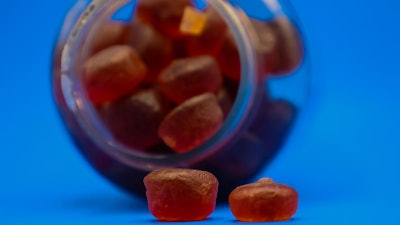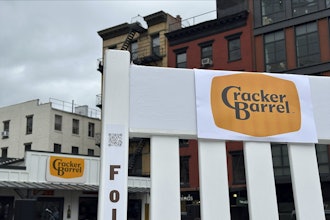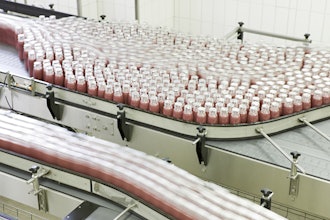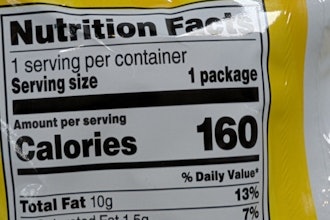
Is it reasonable to believe that a bite-sized, chewy multivitamin is “natural” and free of synthetic ingredients? Maybe so, according to a recent court ruling.
Last month, the U.S. District Court for the Southern District of California refused to dismiss a class action lawsuit alleging that the marketing of Bayer’s One A Day Natural Fruit Bites is false and misleading. In Corpuz v. Bayer Corporation, the plaintiff alleged that he and other “reasonable consumers” believed the multivitamins were natural, or free of synthetic ingredients, because the products’ packaging displays the word “natural” on the front label—this despite the fact that the supplements also contain niacinamide and D-biotin, which the plaintiff claimed are manufactured by a chemical process and therefore synthetic and unnatural.
As alleged in the lawsuit, the plaintiff suggests he would not have purchased or paid as much as he did for the fruit bites had he known they contained synthetic ingredients. In response, Bayer sought to dismiss the plaintiff’s complaint, arguing that no reasonable consumer would expect the obviously manufactured multivitamins to have been created solely by nature, without the use of some chemical process. The company also maintained that the rest of the label provided important context making it clear that the fruit in the product was natural, not the whole multivitamin.
Unfortunately for Bayer, the court disagreed and sided with the plaintiff, finding that a “reasonable consumer” might believe that the “natural” labeling could mean the multivitamins are free of synthetic ingredients. The court further concluded that there is insufficient context on the label to dispel that notion. Thus, the litigation against Bayer continues.
The Absence of a Definition
Significant to the court’s decision was the fact that the U.S. Food and Drug Administration has yet to formally define the term “natural.” Instead, the FDA has relied on a longstanding policy included on its website that “natural” means “nothing artificial or synthetic … has been included in, or has been added to, a food that would not normally be expected to be in that food.” In the absence of an accepted definition, the court ruled that it was enough for the plaintiff to allege that “reasonable consumers”—even if they do not share the same definition of “natural”—could be misled by Bayer’s use of the term on its packaging for the case to survive a motion to dismiss.
The FDA’s failure to establish a formal definition means that opportunistic plaintiffs and willing courts will continue to adopt varying meanings of the word “natural,” to the peril of food manufacturers and marketers. In the case against Bayer, the company stands behind its assertion that its multivitamins are “natural” because they do not contain anything artificial or synthetic “that would not normally be expected to be” in a multivitamin. For its part, the court has seemingly focused on the word “synthetic,” implying that the existence of synthetic ingredients alone renders Bayer’s representation that the fruit bites are “natural” misleading. The result defies common sense (how is it reasonable to believe an obviously manufactured product can be 100% natural?), yet Bayer must continue litigating in order to establish its defenses to the plaintiff’s claims.
Proceed with Caution
So, what can food manufacturers and marketers do to avoid Bayer’s fate? For those using the term “natural” on their labels, there is no foolproof solution. One option is to list one or more of the arguably “processed” ingredients on the front of the label. Note that Bayer argued it provided this context on the back side of its One A Day Natural Fruit Bites bottles). Another possibility would be to modify the word “natural” itself with a phrase like “made with natural” ingredients. In Bayer’s case, had the company marketed its product as being “made with natural fruit” instead of simply “natural,” the court may have found it implausible at this stage of litigation for a ”reasonable consumer” to believe the whole multivitamin was free of anything artificial or synthetic.
Another strategy would be to remove the word “natural” altogether and instead highlight negatively perceived characteristics that are not in the product, such as “non-GMO,” “no trans fats,” “no artificial coloring,” and the like. However, studies indicate that the majority of consumers seek out foods labeled as “natural,” so removing that term may be considered a non-starter.
Ultimately, companies must decide for themselves whether the risk of a (perhaps unfair) lawsuit is worth the expected reward of a winning marketing strategy. Brands that consider the word “natural” as essential to their product’s packaging, conducting surveys or focus groups to determine whether such marketing is likely to deceive the nebulous “reasonable consumer” may be worthwhile. In the event of a lawsuit like the one filed against Bayer, the results could be compelling evidence.
In a world of uncertainty, one thing remains clear: class action lawsuits are showing no signs of slowing down. As such, food manufacturers and marketers must do whatever they can to minimize legal exposure.
Alexander Safyan is counsel at Michelman & Robinson LLP.






















